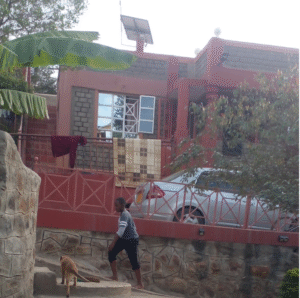Introduction
The Kenpro Green Building Initiative (KGBI) is a program spearheaded by Kenpro to promote sustainable building practices that address environmental conservation, resource efficiency, and improved quality of life. In response to climate change, rapid urbanization, and rising construction demands in Kenya, KGBI advances green building technologies and practices that integrate environmental, social, and economic sustainability.
KGBI envisions buildings that are energy-efficient, water-conscious, resource-responsible, and resilient, while providing healthy, connected, and productive spaces for communities.
Rationale
The rationale for KGBI is grounded in three critical realities:
- Environmental Concerns: Conventional construction methods contribute significantly to greenhouse gas emissions, resource depletion, and waste generation.
- Socio-Economic Demands: Affordable, sustainable housing, institutional, and commercial buildings are increasingly needed to meet Kenya’s population and economic growth.
- Policy Alignment: KGBI aligns with Kenya’s Vision 2030, the National Climate Change Action Plan, and the UN Sustainable Development Goals (particularly SDG 11 on Sustainable Cities and Communities).
Approach
Kenpro implements KGBI through a holistic, action-oriented approach that encompasses design, construction, technology integration, and community empowerment:
Sustainable Building Design and Construction
- Development of eco-friendly architectural designs using locally sourced, recycled, and non-toxic materials.
- Integration of mechanical systemsthat enhance energy efficiency, air circulation, and water management.
- Implementation of modern internet and digital infrastructurefor smart building operations.
Renewable Energy Integration
- Installation of solar photovoltaic systemsfor lighting and heating.
- Establishment of biogas plantsto provide clean cooking and heating solutions.
Water Management and Conservation
- Use of rainwater harvesting systemsand greywater recycling.
- Installation of water-efficient fixtures and plumbing systems to reduce consumption.
Waste Management and Circular Economy
- Recycling and reuse of construction materials to minimize landfill waste.
- Promotion of sustainable waste disposal practices in operational buildings.
Capacity Building, Research, and Advocacy
- Training builders, engineers, architects, and communities on sustainable construction practices.
- Conducting research, publishing case studies, and sharing best practices to inform policy and practice.
- Advocating for policies, incentives, and standards that encourage green building adoption.
Monitoring and Evaluation (M&E)
- Establishing key performance indicators for energy savings, water efficiency, waste reduction, and indoor environmental quality.
- Documenting and reporting project milestonesto track progress, ensure accountability, and share successes with stakeholders.
- Regularly assessing social, economic, and environmental impacts, documenting lessons learned, and refining future projects.
Conclusion
The Kenpro Green Building Initiative (KGBI) demonstrates a practical and scalable approach to sustainable construction in Kenya. By integrating eco-friendly building design, renewable energy, water conservation, waste management, smart technology, and community empowerment, KGBI promotes buildings that are environmentally responsible, cost-efficient, and socially beneficial. Through robust monitoring, documenting, and reporting of project milestones, research, and advocacy, KGBI serves as a model for sustainable urbanization and rural development, inspiring wider adoption of green building practices across Kenya.
For inquiries about Kenpro Green Building Initiative (KGBI), kindly CONTACT US

